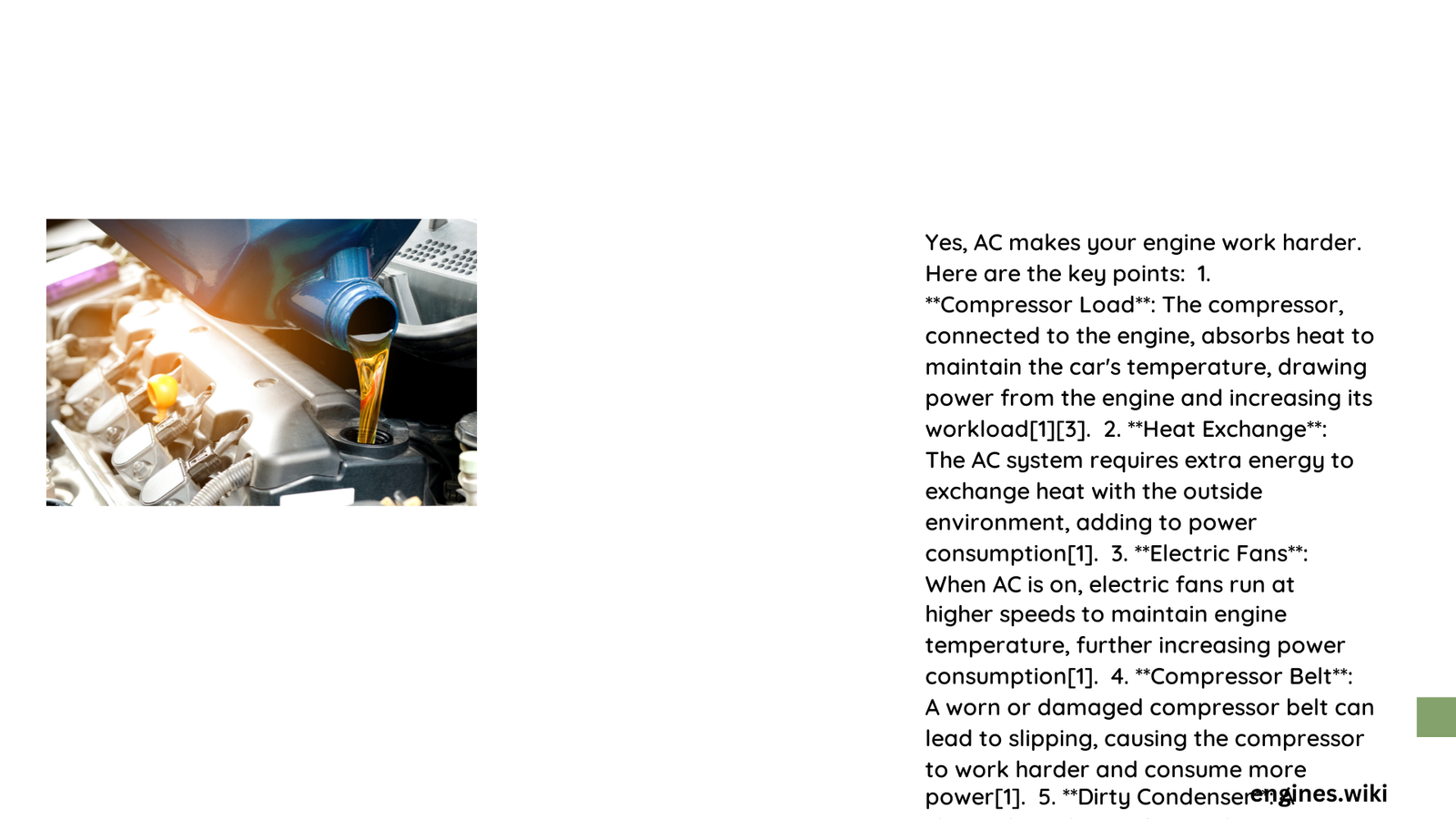Air conditioning in vehicles creates a significant mechanical load that directly impacts engine performance. When activated, the AC compressor demands additional power from the engine, increasing RPM, reducing fuel efficiency, and potentially causing increased wear on critical engine components. This complex interaction between the cooling system and engine mechanics reveals a nuanced relationship that every vehicle owner should understand.
How Does AC Increase Engine Load?
What Happens When AC Compressor Activates?
When you turn on your vehicle’s air conditioning, the AC compressor engages, creating an immediate mechanical load on the engine. This process involves several critical mechanisms:
- Compressor Engagement: Activates a clutch that directly connects to the engine’s crankshaft
- Power Consumption: Requires approximately 4-5 horsepower to operate effectively
- Increased RPM: Typically raises engine speed by 400-500 RPM
Does AC Affect Fuel Efficiency?
The impact of air conditioning on fuel consumption is substantial:
| Driving Condition | Fuel Efficiency Reduction |
|---|---|
| City Driving | 1.5-2.7 km per liter |
| Highway Driving | 0.5-1.2 km per liter |
Factors Influencing AC’s Engine Load
- Vehicle Age: Older vehicles experience more significant performance impacts
- Compressor Condition: Worn compressors increase engine strain
- Ambient Temperature: Higher temperatures require more cooling power
Can AC Cause Long-Term Engine Wear?
Continuous AC usage can contribute to incremental engine stress:
- Belt Tension: Constant compressor engagement increases belt wear
- Temperature Management: Electric fans work harder to maintain engine temperature
- Potential Maintenance Costs: Higher likelihood of component replacements
Practical Strategies to Minimize AC’s Engine Impact

How to Reduce AC’s Performance Load?
- Regular maintenance of AC system components
- Use moderate cooling settings
- Pre-cool vehicle before driving
- Park in shaded areas to reduce initial cooling requirements
Technical Insights into AC Mechanical Dynamics
The AC system transforms electrical energy into mechanical cooling through a complex refrigeration cycle. This process requires significant energy transfer, directly drawing power from the engine’s crankshaft. Modern vehicles incorporate more efficient compressors, but the fundamental energy conversion remains consistent.
Expert Recommendations
Automotive engineers suggest:
– Servicing AC system annually
– Checking refrigerant levels
– Inspecting compressor and associated components
– Using manufacturer-recommended maintenance schedules
Conclusion
While air conditioning does make your engine work harder, modern automotive engineering has significantly mitigated potential negative impacts. Understanding these dynamics helps vehicle owners make informed decisions about comfort and performance.
